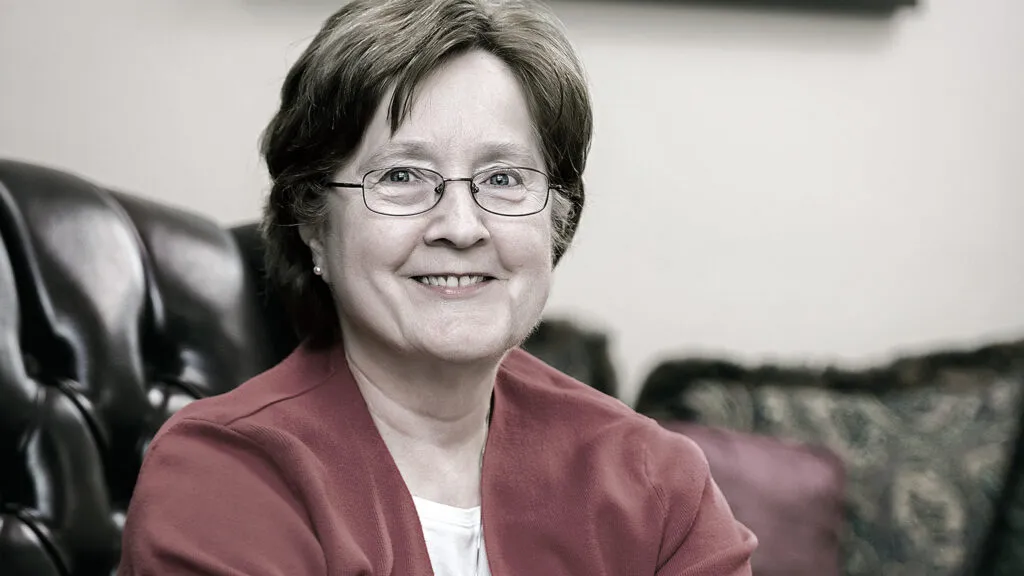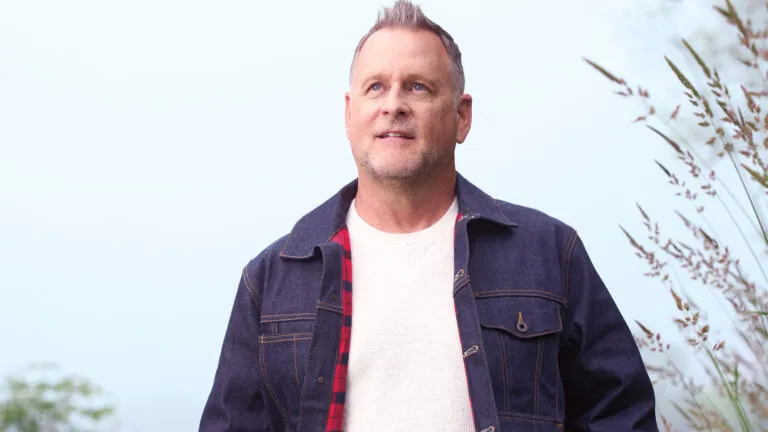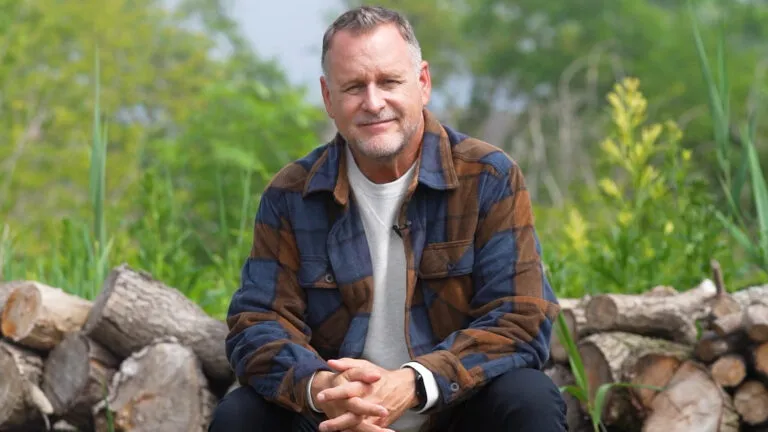A mom sat sobbing in my counseling office. When she was able to compose herself, she whispered, “I started drinking heavily two days after my daughter’s funeral, and I just couldn’t stop.” Her daughter was in elementary school when she died of cancer.
While working in the inpatient chemical dependency unit at a hospital in Oklahoma City, I met a man who’d been given an ultimatum by his boss and his wife: Either get help for his drinking or he’d be fired and divorced. The man insisted he didn’t have a problem.
Another client was in a relapse prevention group I ran. She knew she had a problem. Her kids had been taken by social services and placed with their grandparents because of her drug abuse. She missed them desperately. She said she had to stay sober to get them back.
I’m a licensed alcohol and drug counselor. In my 25 years of working with people with substance use disorders, I have yet to meet a so-called skid row bum. No gutter drunks either. Or hardcore street junkies. The people I treat don’t fit the stereotypes about addicts.
They’re people like you and me—rich, poor, young, old, married, divorced, from all ethnic backgrounds, each with his or her own unique and heart-wrenching story. They are devastated by their addictions and ashamed of the harm they’ve caused. They want to stop but don’t know how. They come to people like me for help.
Here’s one thing I’ve found that does not help addicts: those stereotypes, what I call the myths about addiction. Addicts are popularly depicted as weak-willed quasi-criminals indifferent to the trail of destruction they leave in their wake.
Nothing could be further from the truth. And truth is precisely what does help people who have substance abuse problems. I should know. My father was an alcoholic. My childhood was unstable, sometimes frightening. I didn’t understand how a husband and father could treat his loved ones like that. For many years, I lived with my own myths about addiction. My desire to understand and to help others led me first into nursing and then into alcohol and drug counseling.
The key to recovery from addiction is a clear-eyed grasp of what substance abuse is, how it affects people and how it can be treated. Step one in that process is dispelling the counterproductive myths that keep many addicts trapped in a downward spiral of using. Here are five of the most common:
1. Addicts are weak-willed people who can quit if they want to. The 2016 Surgeon General’s report on alcohol, drugs and public health defines substance abuse disorders as “a chronic but treatable brain disease that requires medical intervention, not moral judgment.” Many of the people I work with want desperately to stop abusing drugs and alcohol, even as they get DUIs, lose jobs, go broke, ruin their marriages or go to prison. They try, often repeatedly, to quit.
Addicts struggle to get sober not because their wills are weak but because they have a disease. The right response to substance abuse is not judgment. It’s treatment. And understanding.
Unlike other diseases, substance abuse can’t be cured with surgery or medication. It’s a brain disease, and it requires a lifelong commitment to the work of recovery—counseling, participation in a 12-step program or other accountability group, a daily discipline of sobriety and a loving support network. There are also medications that, for some people, can help reduce cravings for alcohol and opiates.
Once addiction has taken hold, recovery is the top priority.
2. “I don’t have a drinking problem because I never drink before 5 p.m.” Just because an addict holds down a job, goes to church and seems to have their life together doesn’t mean they’re not an addict. In fact, one frequent sign someone is an addict is their strenuous denial that they have a problem.
Addiction professionals use an Addiction Severity Index and other established psychological criteria to measure the seriousness of an addict’s disease. Everyone is different. Some alcoholics have a few glasses of wine each night. Some binge-drink, then follow it up with periods of sobriety. Addicts to pain pills can keep their problem hidden even from spouses.
In general, the American Psychological Association defines moderate alcohol use as one to two drinks (one drink being 5 ounces of wine, 1.5 ounces of liquor or 12 ounces of beer) per day. Anything beyond that—especially drinking that interferes with work, relationships or family responsibilities—is on the spectrum of alcohol abuse. Use of illegal drugs, or taking more of a prescription medication than ordered by a doctor, almost certainly constitutes substance abuse.
Addicts often say, “I don’t have a problem because I can stop if I want to.” My response to them is, “Then why haven’t you stopped?”
3. Addicts have to hit rock bottom before they can get help. Not true. When it comes to recovery, addiction professionals think in terms of stages of change. The stages progress from “not ready at all” (as in, the addict doesn’t think they have a problem) to “not yet ready” (the addict thinks maybe they have a problem) to “getting ready to change” (the addict wants to change and has made a commitment to change) to “action” (the addict seeks recovery). After that comes maintenance (maintaining behavioral changes). Treatment can start as early as the first stage.
It doesn’t require a car crash or a lost job to alert an addict to a problem. I’ve had clients who held demanding jobs even though they had lost control of their use of alcohol.
At the same time, rock-bottom experiences don’t always push addicts into recovery. I’ve worked with patients right after they got out of jail for public intoxication. A stint in jail might be a wake-up call for many people. Not these patients. It made them think that maybe they had a problem.
Loved ones of addicts usually know there is a problem long before that rock-bottom moment. They yearn to prevent that moment from arriving. They can’t. Only the addict can. What I advise loved ones to do is urge an addict to seek treatment, commit the addict to God and tend to their own safety and emotional health. Above all, both addicts and their loved ones can pray.
4. People of faith don’t have substance abuse issues. I wish that statement were true. The faithful are just as good as every other addict at masking their problems, maybe even better. I’ve found in my work that churches can be among the hardest places to be open about addiction. Substance abuse has a stigma and is considered shameful, something that doesn’t happen to “good” or “holy” people.
It doesn’t have to be this way. Churches and other places of worship have an opportunity to be places of first—not last—resort for addicts. They have so much of what addicts need. Community. Accountability. Recovery groups. Opportunities to help others. Above all, God.
In my experience, believers often have an advantage in 12-step programs because they don’t stumble over the higher power part. They may start out thinking that God is ashamed of them (not true). But at least they believe God is there.
That gives them hope. And it is hope—not presenting a “good” or “holy” image to the world—that addicts need most of all.
5. Addicts don’t care about the effects they have on others. They just want to get their fix. I used to struggle with this one. Growing up, I didn’t understand why my dad didn’t just stop drinking. Did he love alcohol more than he loved his family?
Now I understand that Dad was not choosing alcohol over me. It wasn’t a choice at all. He had a physical, mental and emotional dependence on alcohol that overrode everything else. I sometimes think of my dad when I’m working with clients. Most of them hate how their addiction affects their loved ones. They feel guilty. For a long time, they numbed their guilt by using. In recovery, they choose to face it sober and try to make amends.
A major task for addicts, in my experience, is for them to learn to see themselves as their higher power sees them. I like to say that God doesn’t make junk. God sees through this disease to the good person inside. God knows that the addict’s deepest desire—even when they can’t articulate it—is to get clean and become a kind, loving, responsible human being no longer trapped by their disease.
Myths about addiction harm everyone touched by this disease, not just addicts themselves. If you find yourself blaming an addict in your life or blaming yourself, covering up the problem, keeping friends at church in the dark or feeling bitter that the addict has chosen addiction over love—those are all danger signs.
Here’s what I have found works. Instead of blaming an addict or moralizing at them, encourage them to seek help. If they refuse, seek treatment for yourself in the form of Al-Anon or some other support group for loved ones of addicts.
Be honest about the problem. Don’t be fooled by the idea that a person can be a “functioning addict.” That’s another myth. Or by reassurances that, following a brief stint in treatment, the addict is “cured.” Recovery from substance abuse is a lifelong commitment, a day at a time. There is no cure, only recovery.
Above all, don’t hide and don’t be embarrassed. Addiction thrives in darkness. It fears the light of truth. If you or a loved one has a problem, tell your friends. Seek help. Lean hard on your higher power. In one way or another, I have been involved with addiction all my life. I grew up the child of an alcoholic, and now I’m a substance abuse professional. In that long journey, I have found the Serenity Prayer used by Alcoholics Anonymous to be hugely helpful: “God, grant me the serenity to accept the things I cannot change, courage tochange the things I can and wisdom to know the difference.”
Those words are no myth. I pray that truth in all its forms dispels the addiction myths in your life and gives you the hope you need.
Did you enjoy this story? Subscribe to Guideposts magazine.





